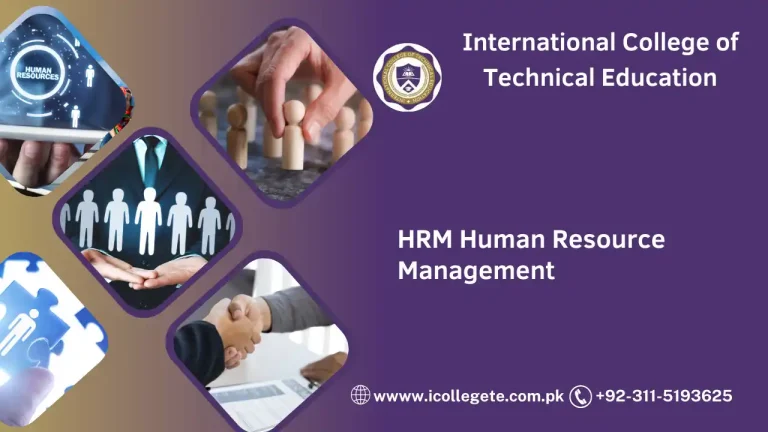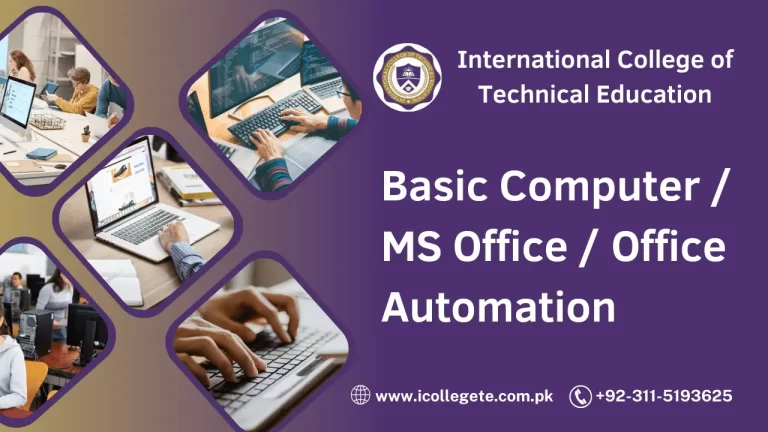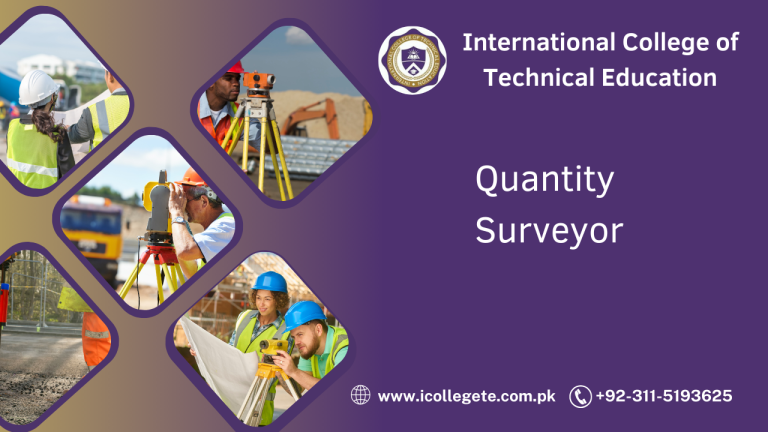Ensuring food safety is a responsibility that extends beyond basic hygiene. It involves understanding the risks, implementing control measures, and adhering to standards that guarantee food quality and safety from production to consumption. The Food Safety Level 2 Course in Islamabad is designed for individuals who are looking to deepen their understanding of food safety, particularly in environments where food is prepared, cooked, and served. This course is ideal for those who have already acquired basic food safety knowledge, such as through a Level 1 course, and are ready to take on more advanced responsibilities in food safety management.
The Food Safety Level 2 course provides essential knowledge of how to control food safety risks, ensure hygienic practices, and comply with legal requirements. It is a valuable qualification for anyone working in a food-related role, especially those in supervisory positions or those looking to move up in the food safety management hierarchy.
Course Overview
The Food Safety Level 2 Course builds on the fundamental food safety principles introduced in Level 1, offering more detailed insights into managing food safety risks, ensuring hygiene, and preventing contamination across all stages of food preparation, handling, and service. This course goes beyond the basics to cover a broader scope, including the management of hazards, foodborne illnesses, and the importance of complying with food safety laws and regulations.
The course emphasizes practical application, providing students with the knowledge needed to reduce the risk of foodborne illnesses, ensure food quality, and maintain a safe working environment in food establishments. Upon completion, participants are well-equipped to handle day-to-day food safety concerns and contribute to the development and enforcement of food safety systems in various food sectors.
Study Units in Food Safety Level 2 Course
The Food Safety Level 2 course includes the following key study units:
- Introduction to Food Safety and Legal Requirements
- The importance of food safety in the food industry.
- Overview of food safety laws and regulations (local and international).
- The responsibilities of food handlers and business owners.
- Foodborne Illnesses and Contamination
- Understanding different types of foodborne illnesses (bacteria, viruses, toxins).
- How contamination occurs and how to prevent it.
- Identifying high-risk foods and situations that contribute to contamination.
- Temperature Control in Food Safety
- The role of temperature in controlling bacteria growth.
- Guidelines for storing, cooking, and serving food at safe temperatures.
- Understanding the “temperature danger zone” and how to avoid it.
- Personal Hygiene and Food Handling Practices
- The significance of personal hygiene for food safety.
- Handwashing techniques, proper attire, and cleanliness standards.
- Preventing cross-contamination and understanding safe food handling practices.
- Cleaning, Sanitization, and Pest Control
- The importance of maintaining cleanliness in food environments.
- Effective cleaning and sanitization procedures for equipment and food preparation areas.
- Pest control measures and maintaining a pest-free environment.
- Food Safety Systems and Hazard Analysis
- Introduction to Hazard Analysis Critical Control Points (HACCP).
- Implementing and maintaining food safety management systems.
- Monitoring, recording, and maintaining food safety records.
- Health and Safety in Food Environments
- Identifying potential hazards to health in the food service industry.
- Preventing physical, chemical, and biological hazards.
- Ensuring a safe work environment for food handlers and customers.
Learning Outcomes
Upon successful completion of the Food Safety Level 2 course, participants will:
- Understand food safety laws and regulations, and how to apply them in food handling and management.
- Identify the causes of foodborne illnesses and how to prevent them.
- Be proficient in managing food safety risks and applying safe practices at all stages of food handling, storage, and service.
- Understand how temperature affects food safety and how to ensure that food is kept at the right temperatures.
- Implement effective hygiene practices for both personal and environmental safety.
- Develop skills in maintaining and auditing food safety systems, including HACCP.
- Understand the importance of regular cleaning, sanitization, and pest control to maintain a safe food environment.
Course Benefits
The Food Safety Level 2 course offers a range of benefits, both for individuals and organizations:
- Enhanced Knowledge of Food Safety: Participants gain a deeper understanding of how to control food safety risks, ensuring that food is safe for consumption and of high quality.
- Improved Workplace Safety: By following the practices taught in this course, workplaces can reduce the risk of contamination and foodborne illness outbreaks, leading to a safer environment for employees and customers.
- Compliance with Legal Requirements: This course helps businesses comply with local and international food safety laws and regulations, avoiding fines or legal issues related to unsafe food practices.
- Career Advancement: Food safety qualifications like Level 2 can enhance job prospects and provide opportunities for career progression in the food industry. It is a must-have for supervisors, managers, and those wishing to take on more responsibility in food safety.
- Improved Customer Trust and Satisfaction: Safe food handling practices contribute to customer satisfaction and build trust in your brand, making customers more likely to return.
- Cost Savings: Reducing the risks of foodborne illnesses, food waste, and contamination helps businesses save money. Ensuring high food safety standards can lead to fewer health complaints and product recalls.
Who Is This Course For?
The Food Safety Level 2 course is ideal for individuals working in the food industry who need a comprehensive understanding of food safety and hygiene practices. This includes:
- Food Handlers and Kitchen Staff: Cooks, chefs, kitchen assistants, and food preparers who need to enhance their food safety knowledge.
- Supervisors and Managers: Individuals responsible for overseeing food safety practices in restaurants, catering services, hotels, or other food-related businesses.
- Food Service Workers: Employees in front-line food service roles, such as waitstaff or those handling food in retail or catering environments.
- Small Business Owners: Restaurant owners, café operators, or small food business owners who want to ensure their establishments meet food safety standards.
- Food Production Workers: Employees in food manufacturing or production plants who handle raw ingredients or finished products.
Future Progression for Food Safety Level 2 Course
After completing the Food Safety Level 2 course, there are several pathways for further development in the food safety field:
- Food Safety Level 3: For those aiming for managerial roles in food safety, the Level 3 course covers advanced topics such as food safety auditing, staff training, and developing food safety management systems.
- HACCP (Hazard Analysis and Critical Control Points): A deeper dive into food safety, this certification is essential for those involved in food production and processing, focusing on identifying and controlling food safety hazards.
- Advanced Food Safety Management: For professionals looking to take on senior roles in food safety, this course provides advanced knowledge in managing food safety programs and leading teams in food establishments.
- Professional Certifications: Pursuing certifications from recognized bodies such as the International Register of Certificated Auditors (IRCA) or NEBOSH (National Examination Board in Occupational Safety and Health) can further enhance career opportunities in food safety and health management.
- Environmental Health Officer (EHO): For those interested in government roles, food safety qualifications can be the stepping stone toward becoming an Environmental Health Officer, who enforces food safety regulations in public health.
Conclusion
The Food Safety Level 2 Course in Islamabad is a vital certification for anyone working in the food industry who wants to deepen their understanding of food safety practices. With a focus on managing foodborne risks, temperature control, and hygiene, this course equips professionals to ensure that food is safe, healthy, and prepared in compliance with regulatory standards.
Whether you’re a supervisor, manager, or food handler, this course provides the knowledge and skills required to minimize risks, improve food safety practices, and maintain a safe and hygienic environment in your workplace. Upon completion, participants are better equipped to enhance the quality of food services, reduce foodborne illness outbreaks, and contribute to the success of their organizations.
By taking the Food Safety Level 2 course, you can pave the way for future career growth, open doors to more advanced qualifications, and become a key player in ensuring the safety and well-being of your customers and colleagues.







